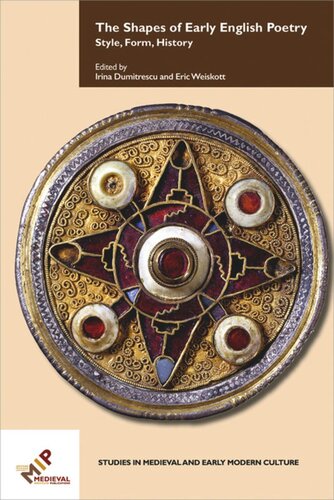

Most ebook files are in PDF format, so you can easily read them using various software such as Foxit Reader or directly on the Google Chrome browser.
Some ebook files are released by publishers in other formats such as .awz, .mobi, .epub, .fb2, etc. You may need to install specific software to read these formats on mobile/PC, such as Calibre.
Please read the tutorial at this link: https://ebookbell.com/faq
We offer FREE conversion to the popular formats you request; however, this may take some time. Therefore, right after payment, please email us, and we will try to provide the service as quickly as possible.
For some exceptional file formats or broken links (if any), please refrain from opening any disputes. Instead, email us first, and we will try to assist within a maximum of 6 hours.
EbookBell Team

5.0
60 reviewsThis volume contributes to the study of early English poetics. In these essays, several related approaches and fields of study radiate outward from poetics, including stylistics, literary history, word studies, gender studies, metrics, and textual criticism. By combining and redirecting these traditional scholarly methods, as well as exploring newer ones such as object-oriented ontology and sound studies, these essays demonstrate how poetry responds to its intellectual, literary, and material contexts.
The contributors propose to connect the small (syllables, words, and phrases) to the large (histories, emotions, faiths, secrets). In doing so, they attempt to work magic on the texts they consider: turning an ordinary word into something strange and new, or demonstrating texture, difference, and horizontality where previous eyes had perceived only smoothness, sameness, and verticality.